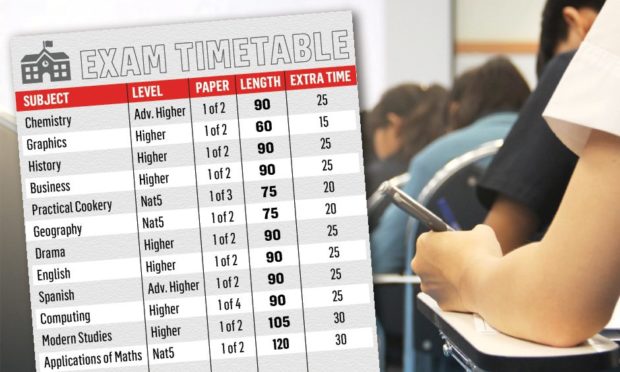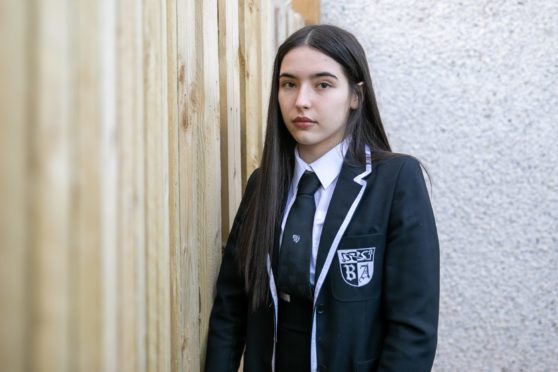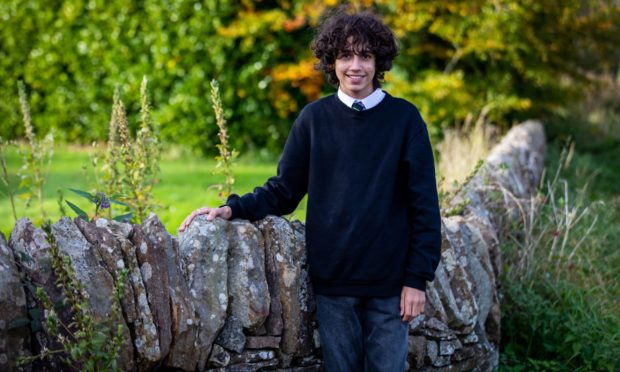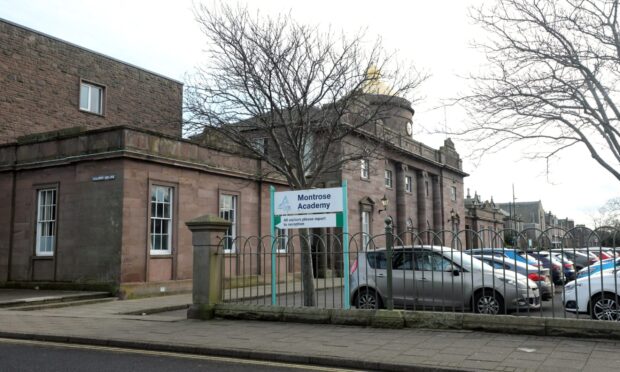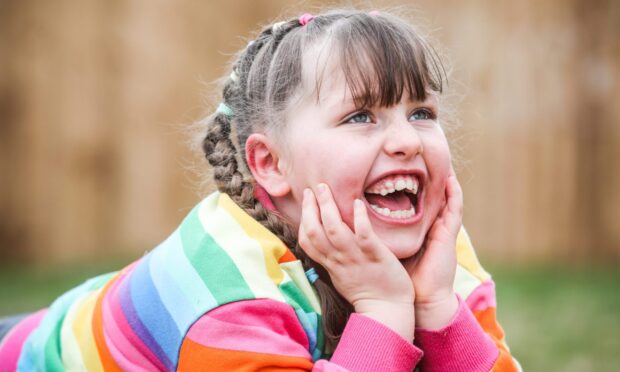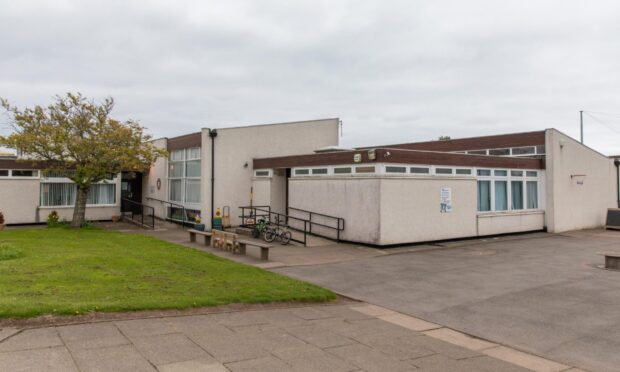Local pupils are on the brink of failing their school assessments as hectic exam timetables and lockdown takes a toll on their mental health.
Alternative assessments began for thousands of pupils this month after exams were cancelled last year.
Pupils learned of their ‘exam’ schedules around Easter – before they had been back to school full time.
Dundee pupil Deni McGurty, 16, says she will be unable to pass her maths assessments because the class had only studied half the course throughout lockdown.
The fifth year Baldragon Academy teenager, who aspires to be a midwife, has also had to drop units in her science subjects in order to juggle her part time job with studying.
She said: “Assessments have been the most stressful thing I’ve probably experienced. My brain cannot function or find the time to be okay and it’s exhausting.
“I leave (school) in a few weeks and I am so excited for it just to get peace and regenerate myself due to not having study leave and having to work.
“I think it’s totally obscure what the SQA are doing. We definitely have made the record of the hardest years at school.”
Hilary Lumsden, says her son Saif Azzam, an S4 pupil at Bell Baxter High School, in Cupar, Fife, has transformed into an unrecognisable teenager following the stress of exams.
There are no words to describe how pathetic the idea of punishing them for this is.”
Hilary Lumsden
Saif, 15, will sit four assessments this week and has already seen his grades plummet from an A to around a C in the space of two months.
The assessment criteria bases grades on teacher estimates and a “quality assurance” procedure overseen by the SQA.
Worried about her son’s future, Hilary said: “Saif has been a high achiever until Covid struck. Since then, there has been crashes in his results when being tested.
“These exams don’t always seem to equate to what they have been learning over the year.
“Teachers have had to choose what to concentrate on and what they’ve been able to deliver in lockdown.
“A lot of these kids haven’t even engaged and I feel these exams are extremely unfair.
“It makes me deeply upset because it’s as if all of the years up until this point don’t exist.”
The issue, Hilary says, has been exacerbated by the threat of penalty from the schools if pupils discuss their assessments with friends.
The SQA released a statement urging schools to impose penalties to pupils who were found to be sharing assessment questions after thousands of comments emerged on TikTok.
She first addressed fears over ‘exam’ sharing months ago when her son’s school announced their timetable plans.
“It’s absolutely obvious that the connectivity of that children that age – which has only been increased by lockdown – meant this was going to happen.
“There are no words to describe how pathetic the idea of punishing them for this is. It’s always the children and the schools that get the blame.
“The system is so unfair in that there is no consistent approach across schools which means there is also likely to be a postcode lottery with how your school deals with it.
“You could end up in a school where a horrendously strict approach is taken to fail a whole class because they can’t pinpoint where the leak has come from.”
Jack Bell, MSYP for Perthshire and South Kinross-shire said: “It’s been an incredibly challenging year with limited opportunities for rest and relaxation, difficulties with online learning, stringent restrictions in the classroom and a reliance on self-study greater than any other year.
A generation’s futures are at stake.”
Jack Bell, MSYP.
“Young people have received mixed signals about how they would be graded throughout the year, and in many places are suddenly facing assessments perceived as exams sprung on them. Young people are struggling, and their wellbeing must be looked after.
“A generation’s futures are at stake – to deny young people their say and, more importantly, their hand in shaping the system, would be catastrophic.”
An SQA spokesman said there was no requirement to replicate formal exams or prelims.
He added: “The National Qualifications Group has been clear that this year’s alternative certification model is based on teacher and lecturer judgement, with evidence of demonstrated attainment used to support that professional judgement.”
